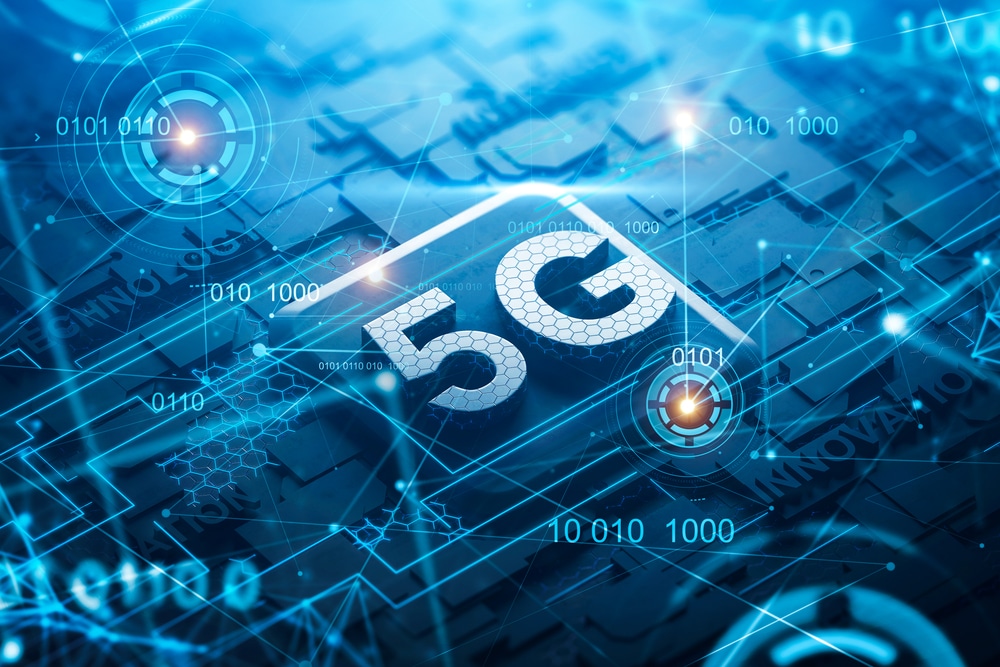![How 5G is set to transform the way businesses connect [Q&A]](https://www.eri-salary-survey.com/wp-content/uploads/2024/01/How-5G-is-set-to-transform-the-way-businesses-connect.jpg)

As the global marketplace becomes more competitive in response to customer demand, businesses must find alternative ways to deliver exceptional customer experiences. As budgets are tightening, companies are being scrutinized to new degrees for what they can deliver at a competitive price, with research conducted by Salesforce showing 60 percent of service professionals reporting higher customer expectations post-pandemic.
Should organizations fall short of these high expectations, customers are more than willing to look elsewhere. In fact, recent research from Emplifi found that 86 percent of consumers would leave a brand they trusted after only two poor customer experiences
Foundational for today’s positive customer experience is the planning and design of an effective underlying connectivity network. Reliable, high-performance connectivity ensures customers are getting their promised services and facilitating business agility and resiliency. Additionally, properly designed networks safeguard against unplanned downtime and help grow operations.
Businesses now have many options when it comes to boosting their connectivity. One option currently receiving attention among enterprise IT buyers is 5G Fixed Wireless Access (FWA). 5G FWA technology provides stable, high-speed internet which offers high-performance, low latency for businesses, without the need for construction. This helps reduce implementation and environmental costs, while fulfilling customer expectations and remaining agile.
What to expect in this new era of connectivity
FWA is a type of 5G cellular technology that relies on radio waves to broadcast high-speed signals across vast distances — instead of fiber optic cabling — reducing the number of infrastructural challenges related to traditional broadband access. For businesses and their end customers, it offers greater reliability and resiliency with improved performance.
By delivering ultra-fast speeds, 5G FWA enables IT departments to keep up with their customers’ (both internal and external) ever-changing expectations. It does so by providing optimal connectivity for guests and employees. This is a game-changer, especially in challenging-to-reach locations when wireline solutions for primary networks are difficult to establish.
Another benefit associated with 5G FWA is easy installation. Unlike traditional connections, it can be installed without any underground cable drilling or wiring. For a business to initiate 5G Fixed Wireless Access, it’s essential to have the necessary expertise and a device situated at the customer’s location, which includes a 5G-compatible SIM card. This also makes it far more cost effective than many of the other solutions on the market.
The most impactful uses of 5G FWA today
5G FWA has the power to transform many industries — including manufacturing, agriculture, healthcare, retail, hospitality and banking — due to its ability to provide high-speed connectivity, rapid deployment, fewer business interruptions and improved scalability. Today, many of these benefits are already being witnessed in retail environments, where the blending of 5G and Wi-Fi has extended connectivity, leading to improved customer experiences, reliable point of sales (POS) processing, and faster decision making.
Partners can help unlock 5G FWA’s full potential
Before businesses can unlock the 5G FWA rewards, there are some things to consider, especially when it comes to implementation. One key area that needs to be addressed is whether they have the required skillset and expertise to ensure that deployment and everything it entails — from integrating existing infrastructure to combating potential network congestion and cost, plus everything that follows the deployment – is a success.
To truly unlock the potential of a 5G FWA network, organizations should work with an experienced partner who can offer tailored solutions. They should bring to the table a global reach complemented by local knowledge and be able to address each organization’s unique requirements.
The right partners can also help businesses to keep track of connectivity performance and make the most of their investment. Using real-time reports from the moment of 5G FWA activation, they can advise on any improvement areas and keep tabs on connectivity levels. This enables businesses to react quickly and efficiently in response to any changes, boosting their flexibility, whilst enabling them to meet customer expectations across the board.
Entering the era of enhanced connectivity
As organizations continue to prioritize seamless and high-quality experiences for their employees and customers, 5G FWA will emerge as a pivotal part in the design, plan and delivery of high-quality services. It shouldn’t come as any surprise that the number of 5G FWA connections is predicted to explode and reach 236 million worldwide by 2028, up from 35 million in 2023.
Effective implementation and handling of this technology helps organizations to stay flexible, maintain uninterrupted operations, and create a competitive advantage that enables them to satisfy the needs of their employees and clients promptly and effectively. 5G FWA is only the first of a new generation of connectivity technologies, and we are excited to see this innovation evolve.
Image credit: denisismagilov/depositphotos.com
Todd Mussman is Wireless Connectivity Expert at GTT.
